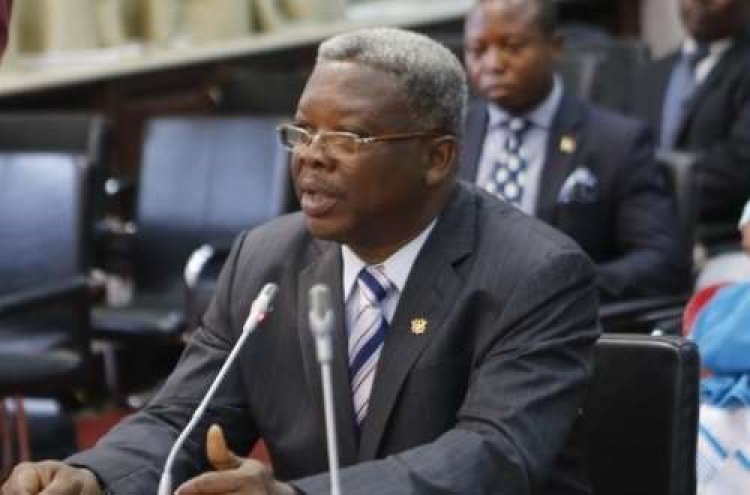Office of the Special Prosecutor is Not Independent Whatsoever —Justice Apau Declares
Justice Yaw Appau, Supreme Court Judge and former Sole Judgment Debt Commissioner has challenged that the Special Prosecutor was not and had no independence whatsoever and was subject to the authority of the Attorney-General.

Supreme Court Judge and former Sole Judgment Debt Commissioner, Justice Yaw Appau has discounted the widely reported claims that the Office of Special Prosecutor (OSP) is an independent body like the Electoral Commission (EC) of Ghana.
He stated that Ghanaians should not be allowed to be deceived that the OSP is a state independent body, saying that OSP has no independence whatsoever.
He stated that Act 959 which established the Office of the Special Prosecutor (OSP), has a limited role in the investigation and prosecution of criminal cases.
“The law provides that the Special Prosecutor investigates and prosecutes specific cases of alleged or suspected corruption-related offences however, the question is, who decides on the specific cases to be investigated and prosecuted?” he asked.
Justice Apau indicated that since the Special Prosecutor works under the supervision of the Attorney-General, he or she would not have the freedom to prosecute government appointees without the approval of the Attorney-General.
Speaking as one of the panellists at the 8th edition of ‘The Leadership Dialogue Series’ organised by the Centre for Social Justice, he lamented that the euphoria which heralded the establishment of the OSP was misplaced since the office had proved to be ineffective in the fight against corruption.
“The establishment of the office and the appointment of Martin Amidu as the first Special Prosecutor was widely welcomed which many Ghanaians thought an antidote to public corruption, particularly political corruption, had been finally found.
“The expectation of many Ghanaians was political appointees and public officials who had been named or accused of corrupt acts during our political party campaigns and in the media would be prosecuted and punished if found culpable but that was far from right.
“The Attorney-General doubles as the Minister of Justice and is unable or unwilling to prosecute his colleague ministers or other government appointees who engage in dubious and corrupt acts and for the office to be effective, it must be insulated from the influence of the government of the day, as the case with the Electoral Commissioner,” Justice Apau pointed out.
He indicated that whilst the Electoral Commissioner was somehow totally independent, the Special Prosecutor was not and had no independence whatsoever and was subject to the authority of the Attorney-General.
Freeman Koryekpor Awlesu


 Joana Somiah
Joana Somiah 

































